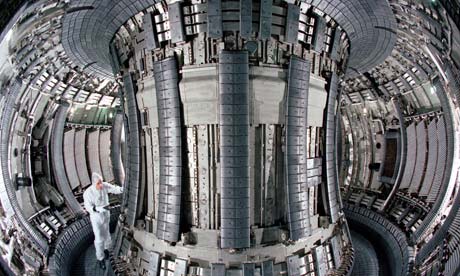In among a raft of new infrastructure spending announced by the UK government in the wake of last week’s spending review, it was revealed that the cost estimates for the HS2 high-speed train line had been revised significantly upward. According to the new projections, HS2 will be completed in 2033 at a total cost of £42.6bn for construction and £7.5bn for trains – a total of just over £50bn.What is immediately striking about this figure is that it’s about the same as estimates of how much it will cost to develop nuclear fusion to the point at which it could supply affordable electricity to the grid.
Fusion power has the potential to revolutionise the entire world’s energy production. It could dramatically reduce the world’s carbon emissions (a fusion reactor emits no carbon dioxide), provide energy independence to any nation with access to a coastline (since there is millions of years’ worth of fusion fuel in the world’s oceans), and do all this with no danger of meltdown or long-lived radioactive waste.
Alternatively, we could use our £50bn to shave 35 minutes off the journey time between London and Birmingham.
Whatever you think of the arguments for and against HS2, estimating its economic benefits is a fraught business because it’s so difficult to predict how it will fit into the UK’s broader transport infrastructure by the time it has been completed. By contrast, the economic, environmental and social ramifications of almost limitless clean energy have the potential to far outweigh those of a new stretch of high-speed train line connecting a handful of cities on a small island.
But can we really have fusion for a few tens of billions of pounds? Obviously, no one knows for sure. If we knew exactly what remains to be done, we wouldn’t need to spend all that money on research to find out. However, there are reasons to be optimistic: we’ve got fusion working, albeit fleetingly, at the JET reactor in Oxfordshire, and consequently we have a good idea of what issues need to be overcome to progress from experimental devices to working power plants.
£50bn question: do we want faster trains or limitless clean energy?

No comments:
Post a Comment